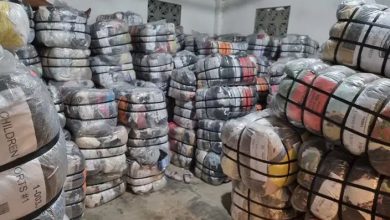Requirements And Cost Of Starting A Grocery Business In Kenya
The grocery business in Kenya revolves around the buying and selling of food and other household items to consumers. It comprises a wide range of products, including fresh produce, packaged goods, beverages, personal care items, and cleaning supplies, among others. Grocery stores in Kenya can vary in size and format, ranging from small neighborhood shops to larger supermarkets.
In Kenya, the grocery business plays an important role in meeting the daily needs of the population. With the rising middle class and urbanization, more people are turning to grocery stores for their food and household shopping. The grocery sector in Kenya has also witnessed growth due to increased disposable income, changing lifestyles, and the convenience offered by organized retail outlets.
To succeed in the grocery business in Kenya, it is important to understand how the market operates. And also factors such as location, product variety, quality, pricing, and customer service play a vital role in attracting and retaining customers.
How Profitable Is A Grocery Store In Kenya?
Owning a grocery store in Kenya can be highly profitable due to the steady demand for essential food items. Moreover, Kenyan consumers rely heavily on local grocery stores for their everyday needs, making it a resilient and potentially lucrative business opportunity.
What Are The Regulations Regarding Food Safety And Hygiene For Grocery Stores In Kenya?
Ensuring food safety and hygiene is paramount for any grocery store in Kenya. To comply with the regulations set by the relevant authorities, you must adhere to strict standards to protect the health and well-being of your customers. These regulations include proper storage and handling of food items, maintaining cleanliness and hygiene within the store, and obtaining necessary permits and certifications.
What Are The Best Locations To Set Up A Grocery Store?
Choosing the right location is an important factor you must consider for the success of your grocery store. However, the ideal locations for setting up a grocery business in Kenya include residential areas, densely populated neighborhoods, and areas with high foot traffic. Most importantly, analyzing competition will help you identify the best locations that align with your target customer base.
How Do I Source Products For My Grocery Business?
To stock your grocery store, you can establish relationships with local suppliers, farmers, and distributors. Kenya has a rich agricultural sector, and partnering with local farmers and cooperatives can not only ensure fresh produce but also support local communities. Additionally, consider exploring partnerships with established wholesalers and leveraging online platforms for a wider variety of products.
What Are The Equipment Needed To Start A Grocery Store In Kenya?
Equipping your grocery store with the right tools and equipment is essential for smooth operations. Some basic equipment includes refrigeration units, shelving systems, cash registers, weighing scales, shopping carts, and packaging materials. Depending on the scale and specific needs of your store, you may also require additional items such as a barcode scanner, computer systems, and point-of-sale (POS) software.
What Are The Most Profitable Items To Sell In A Grocery Store In Kenya?
To maximize profitability, it’s important to identify and offer products that are in high demand among Kenyan consumers. Staple food items like rice, maize flour, cooking oil, and sugar are perennial favorites. Additionally, fresh fruits, vegetables, dairy products, and household essentials such as cleaning supplies and personal care items are popular choices.
Running a grocery store in Kenya comes with its challenge. Some common difficulties include fierce competition, fluctuating commodity prices, managing perishable goods, and ensuring consistent supply chains. To overcome these challenges, it’s crucial to develop effective inventory management systems, build strong relationships with suppliers, offer competitive pricing, provide excellent customer service, and implement marketing strategies to differentiate your store.
How Can I Attract Customers To My Grocery Business?
Attracting customers to your grocery business in Kenya requires a combination of effective marketing strategies and excellent customer service. Here are some practical tips to help you attract and retain customers:
1. Create An Appealing Store Layout: Design your store in a way that is visually appealing and easy for customers to navigate. Use attractive displays, organize products logically, and create eye-catching signage to draw customers’ attention to promotions or featured items.
2. Offer Competitive Pricing: Conduct thorough market research to ensure your prices are competitive within your target market. Consider offering discounts, promotions, or loyalty programs to incentivize repeat purchases and attract new customers.
3. Emphasize Quality And Freshness: Kenyan consumers value fresh and high-quality products. Make sure your store prioritizes freshness, and communicate this to your customers. Also, you can partner with local farmers and suppliers to ensure a consistent supply of fresh produce.
4. Offer A Diverse Product Range: While focusing on staple items, also diversify your product range to cater to a wide range of customer needs and preferences. This includes stocking specialty or imported products that may be harder to find elsewhere.
How Much Capital Do I Need To Start A Grocery Business In Kenya?
Generally, you will need funds for store setup, equipment, initial inventory, licenses and permits, marketing, and working capital for the first few months. A rough estimate for starting a small to medium-sized grocery store in Kenya would be between Ksh. 200,000 to Ksh. 1,000,000.
What Are The Legal Requirements For Opening A Grocery Store In Kenya?
To open a grocery store in Kenya, you must comply with various legal requirements and obtain the necessary licenses and permits. Some of the legal considerations include:
- Business Registration: Register your business with the Registrar of Companies or obtain a business name certificate from the relevant authority.
- Licenses And Permits: Obtain licenses such as a single business permit, health certificate, food handling certificate, fire safety certificate, and any other permits required by the local authorities.
- Tax Obligations: Register for tax purposes and obtain a PIN from the Kenya Revenue Authority (KRA). Ensure you comply with all tax obligations, including VAT, income tax, and employee taxes, if applicable.
- Employment Regulations: Get used to labor laws and employment regulations to ensure compliance when hiring employees, providing fair wages, and adhering to working hour restrictions.
- Health And Safety Regulations: Comply with food safety and hygiene regulations, including proper storage, handling, and disposal of perishable items, cleanliness of the premises, and maintaining sanitary facilities.
Summary On How To Start A Grocery Business In Kenya
To start a successful grocery business in Kenya, follow these steps:
1. Conduct Market Research: Assess the demand and competition in your target location to identify the viability of your grocery business. Understand the preferences, purchasing power, and shopping habits of your target customers.
2. Develop A Comprehensive Business Plan: Outline your business goals, strategies, financial projections, and marketing plans. This will serve as a roadmap for your business and help you secure funding if needed.
3. Secure Funding: Determine your startup costs and explore funding options such as personal savings, bank loans, or investments from partners or investors.
4. Find A Suitable Location: Consider the demographics, accessibility, and competition when choosing the location for your grocery store. Negotiate favorable lease terms and ensure the space meets your operational requirements.
5. Obtain Necessary Licenses And Permits: Research and comply with the legal requirements outlined by the local authorities. This includes registering your business, obtaining relevant permits, and ensuring compliance with health and safety regulations.
6. Source Reliable Suppliers: Establish relationships with local farmers, wholesalers, and distributors to ensure a steady supply of quality products. Negotiate favorable terms and maintain good communication with your suppliers.
7. Set Up Your Store: Design an appealing and functional store layout. Install the necessary equipment, shelving, refrigeration units, and point-of-sale systems. Create an inventory management system to track stock levels and manage orders efficiently.
8. Develop A Marketing Strategy: Create awareness about your grocery store. You can achieve this through flyers, and word-of-mouth referrals to attract customers.








